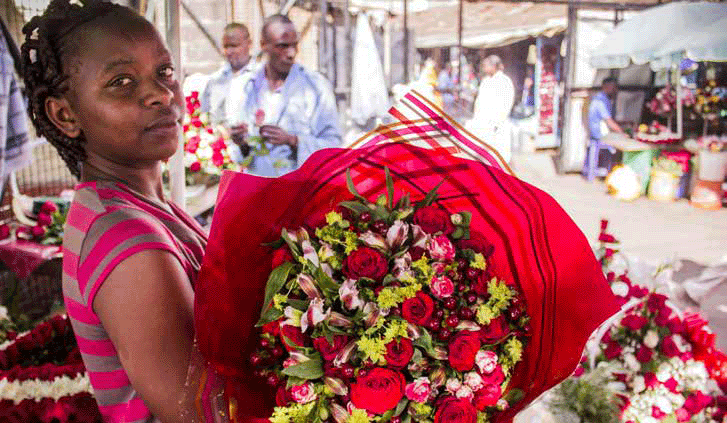
Kenya horticulture sector optimistic amid coronavirus crisis
Even as international shipment of Kenya horticulture products picks up following the gradual easing up of restriction procedures and the reopening of borders to cargo planes, Kenya fresh produce farmers and other players continue to be buffeted by disruptions across the supply chain, a jittery market and general lack of business that has translated into lack of jobs for tens of thousands who rely on the sector for livelihoods.
Shipments of the major horticulture produce including vegetables, flowers, fruits and herbs to key destinations like the European Union have been halted since March when the novel corona virus first hit the country. Kenya acted by suspending international flights.
And as the virus ravaged every facet of the economy, the horticulture industry was losing an estimated an estimated Ksh250 million everyday as tighter restrictions in major destinations also curtailed any exports. Devastating scenes of flower workers discarding heaps of flowers for lack of markets caught global attention.
But with the European countries having started to relax restrictions from May and a plan having been mooted by the Kenya government and the industry actors to have cargo planes export fresh produce, that daily loss came down to approximately $100 million. Still there hasn’t been any respite for farmers as they struggle with lack of airfreight and exorbitant freight prices. Even with the gradual demand in the export markets, commercial passenger flights which are known to carry a sizeable number of Kenya’s horticultural produce are still grounded occasioning limited space. Experts posit that there is currently a weekly cargo demand of 3500 tonnes against available space that can only accommodate 1,500 tonnes each week.
On the other hand, freight price has gone up two times from an average of Ksh200 per kilo to Ksh400 per kilo making it unaffordable to a bulk of producers.
The East African regional trade that has been picking up over recent years has not been spared with drivers spending days in the border points as strict Covid-19 rules get enforced and few drivers get tested. These delays have seen truck drivers especially those who carry perishable goods like onions, mangoes and oranges counting losses as cargo rots. The ripple effects of the shortages have been a spike of fresh produce in major markets especially in the region’s capital cities where prices for these commodities have soared by up to 90 per cent.
But the real impact of the unprecedented crisis to the horticultural industry lies in the number of jobs that have either been lost or hang in the balance for a sector that employs more than 150,000 Kenyans directly and 500,000 others indirectly. The sector has been one of the worst hit alongside tourism, education and transport.
Majority of farms unable to sustain operations have sent their workers on either unpaid leaves, terminated contracts or are mulling closing down shop which means even more job losses.
The unprecedented job haemorrhage in the sector has particularly hit women who remain breadwinners and have to take up the double responsibilities of tending to their children who are at home following school closures. It has brought with it both financial and psychological turmoil. A recent study by Hivos on the impact of Covid-19 on women in the horticulture industry christened ‘Impact of Covid-19 on Women Workers in the Horticulture Sector in Kenya’ has painted a picture of tens of thousands of women struggling to make ends meet even as their family burdens and responsibilities escalate.
“The impact of Covid-19 pandemic has impacted women workers in the horticulture sector socially, economically and psychologically, with the effect spiraling to their homes. Women workers entirely rely on their meagre earnings from the farms thus the disruptions on their jobs have sabotaged their livelihoods and well-being,” read a section of the report. 71 women working in 12 farms in Nairobi and its environs, Rift Valley and Mt Kenyan regions and selected from different departments ranging from production, grading, pack house, sanitation, security and propagation were assessed in the report.
“I feel tormented both mentally and physically. It is like life has turned upside down. I am doing more than double the work I used to do. And yet when I get back home, my children need my full attention,” said one of the survey’s respondents.
As the industry comes to terms with the real impact of the virus and the anticipated disruption of the way of doing business, the report has made a raft of policy, legal and advocacy recommendations to insulate the sector among them establishment of economic rescue and stimulus packages and expansion of the government’s cash transfer programme and other safety nets to workers in precarious employments such as the horticulture sector.
Article By Bob Koigi



